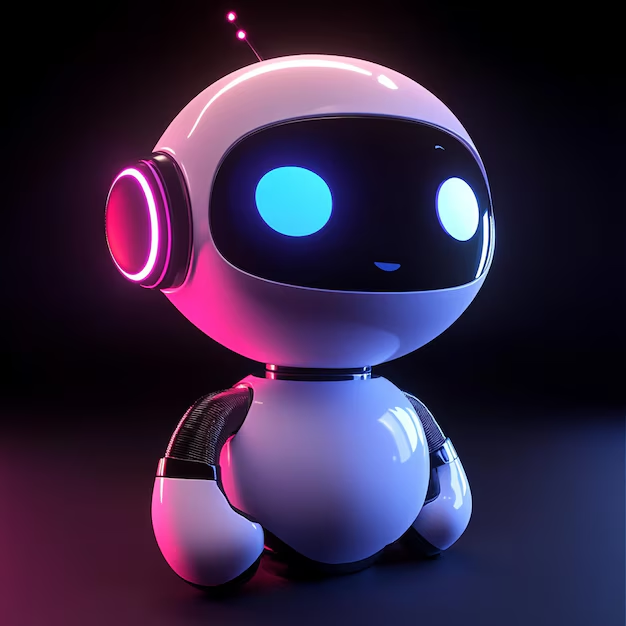
Your Ultimate Handbook for Mastering Industrial Automation
Industrial Automation is a course that focuses on the technologies, systems, and processes used to automate industrial operations. It covers the integration of control systems such as PLCs, SCADA, sensors, and robotics to improve efficiency, safety, and precision in manufacturing environments. The course also explores the principles of automation, industrial communication protocols, and real-time monitoring, preparing learners to design and implement smart automated systems in modern industries.
Propgram Duration
12 Months
Time Commitment
12-15 Hrs/Week
Placement Support
900+ Companies
Enrollment
Highly Selective
How Can We Turn You Into an Expert in insdustrial automation?
In-depth
Knowledge
Real World
Simulations
Placement
Assistance
Industry Requirements
What Tech Companies search for?

ABB Ltd

Adani Enterprises Ltd
Airbnb Inc.

Emerson Electric Co.

Fuji Electric Co., Ltd.

Honeywell International Inc.

Mitsubishi Electric Corporation

Quantum Corporation

Rockwell International

Schneider Electric SE

Siemens AG

Tech Mahindra Ltd
Required Skills
THE ONLY Industrial Automation COURSE THATMakes You Industry-Ready & Future-Proof
Become qualified for roles like Automation Engineer, Control Systems Specialist, and Manufacturing Technologist with this comprehensive industrial automation certification course.
Enhance your professional profile by preparing for industry-recognized certifications and significantly improve your marketability to leading manufacturing employers.
Experience our state-of-the-art simulation laboratory featuring 40+ industry-standard scenarios. Develop your industrial automation expertise through hands-on troubleshooting and real equipment configuration.
Our Curriculum
Expert-Design Course Structure
Introduction to Industrial Automation
Why Learn This
This module provides an overview of industrial automation, covering the fundamental concepts, key components, and various control systems used in automated industries. It lays the foundation for understanding how automation improves efficiency, consistency, and safety in industrial processes.
1.Understanding the concept and significance of automation in industrial settings
2.Exploring essential components such as sensors, actuators, controllers, and interfaces
3.Introduction to different types of control systems including PLCs, SCADA, and DCS
Instrumentation & Sensor Basics
Why Learn This
This module introduces the foundational concepts of instrumentation and sensors used in industrial automation. Students will explore measurement principles, commonly used sensors in factory and process automation, and key control elements for managing industrial processes.
1.Understanding the fundamental principles of industrial measurements
2.Overview of commonly used sensors in Factory Automation (FA) and Process Automation (PA)
3.Basics of measuring Temperature, Pressure, Flow, and Level in industrial systems
4.Introduction to Load Cells, Speed Transducers, and Proximity Sensors used for machine condition monitoring
5.Working with control devices like Solenoid Valves and Control Valves for process regulation
Programmable Logic Controller (PLC)
Why Learn This
This module provides a comprehensive introduction to Programmable Logic Controllers (PLCs), covering their evolution, architecture, types, and configurations. It also explores PLC programming interfaces, safety considerations, and limitations, equipping learners with the knowledge to understand and work with PLC systems in industrial environments.
1.Overview of the development and significance of PLCs in industrial automation
2.Understanding the internal structure and working of a PLC system
3.Exploring the core components that make up a PLC
4.Classification of PLCs based on size and functionality
5.Assessing the performance and power requirements of various PLCs
6.Understanding different PLC configurations for reliability and fault tolerance
7.Introduction to PLC programming interfaces and tools
8.Safety and grounding practices in PLC systems
9.Identifying the challenges and constraints of using PLCs in industrial applications
Motors & Variable Speed Drives
Why Learn This
This module focuses on the fundamentals of electric motors and variable speed drives, essential for controlling industrial machinery. Learners will gain an understanding of motor control principles, starting methods, types of drives, and electrical panel design used in automation systems.
1.Basics of electric motors and key terms used in motor control
2.Exploring why motor control is essential in industrial operations
3.Different techniques for starting motors efficiently and safely
4.Understanding AC drives and their role in controlling motor speed
5.Various types of AC drives and their applications
6.Overview of DC drives and their use in specific industrial scenarios
7.Introduction to switchgear components and fundamentals of electrical panel design
HMI & SCADA
Why Learn This
This module introduces Human Machine Interface (HMI) and Supervisory Control and Data Acquisition (SCADA) systems, which are crucial for monitoring and controlling industrial processes. Students will explore the concepts, hardware types, configuration techniques, and communication protocols that enable real-time visualization and control.
1.Introduction to the roles and functions of HMI and SCADA systems in industrial automation
2.Overview of different HMI hardware and how to select the appropriate type for an application
3.Understanding how PC-based HMI systems are designed and implemented
4.Exploring communication protocols and networking in industrial systems
5.Key features and benefits of SCADA systems for remote monitoring and control
6.Hands-on configuration of SCADA elements like graphics, alarm management, trend analysis, and report generation
PLC & HMI Programming
Why Learn This
This module focuses on programming techniques for PLCs and HMIs based on the IEC 61131-3 standard. Learners will understand the various programming languages used in industrial automation, develop skills in creating logic using Ladder, FBD, ST, and SFC, and explore how to program HMIs and SCADA systems for effective user interaction and control.
1.Overview of the international standard for PLC programming and its importance
2.Understanding devices used to program and configure PLCs
3.Hands-on with key PLC programming languages and methodologies
4.Techniques to identify and resolve issues in PLC programs and hardware
5.Developing interactive HMI screens for industrial applications
6.Building SCADA configurations for monitoring, control, and visualization
READY FOR INDUSTRIAL AUTOMATION ROLES
Covering all modules above makes you ready to apply for industrial automation roles
Factory Automation Applications
Why Learn This
This module provides real-world insights into the application of automation technologies across various industrial domains. Learners will explore how factory automation is implemented in different machinery, enhancing efficiency, precision, and production capabilities.
1.Understanding automation systems used in plastic processing machines for molding and extrusion
2.Exploring automated systems in pharmaceutical manufacturing and packaging processes
3.Automation technologies in textile machinery for improved speed and quality
4.Implementation of automation in modern packaging lines to ensure consistency and productivity
Process Automation Applications
Why Learn This
This module explores the implementation of automation systems in various process industries. Students will gain an understanding of how automation enhances efficiency, safety, and scalability in complex industrial environments such as steel, chemical, power, oil & gas, and more.
1.Automation in steel manufacturing processes including material handling and furnace control
2.Use of automation in chemical processing for precision, safety, and batch control
3.Automation strategies in power generation and distribution systems
4.Process automation in oil and gas industries for drilling, refining, and distribution
5.Controlling and monitoring of sugar production processes through automation
6.Automation in paper production for continuous process control and quality assurance
Process Controllers – Single & Multi-loop PID Controllers
Why Learn This
This module dives deep into process control systems with a focus on PID controllers. Students will explore control strategies, tuning methods, and control algorithms. The module also introduces advanced control configurations and the capabilities of multi-loop controllers used in industrial automation.
1.Introduction to Proportional-Integral-Derivative (PID) control and its industrial relevance
2.Examination of On-Off, Manual Tuning, Fuzzy Logic, Auto-Tune, and Self-Tune techniques
3.Exploring control algorithms including Feedback, Feed-forward, Cascade, and Ratio control
4.Advanced features, applications, and programming techniques of multi-loop controllers
DCS Systems
Why Learn This
This module introduces Distributed Control Systems (DCS), covering their architecture, components, and applications in industrial automation. Students will learn how DCS systems are configured, programmed, and integrated with field devices and communication protocols for comprehensive process control.
1.Understanding the history and development of Distributed Control Systems
2.Overview of controllers, I/O modules, and their embedded firmware
3.Exploring DCS software architecture, communication protocols, and system operations
4.Configuring controllers for process control and system monitoring
5.Introduction to communication channels between DCS and Operator Interface Systems
6.Understanding the role of LANs in DCS communication and integration
7.Connecting field devices using fieldbus protocols for seamless automation
8.Developing and managing control logic and strategies within DCS platforms
9.Setting up and managing alarms for efficient plant operation and safety
10.Generating reports for operational analysis and regulatory compliance
Industrial Data Communication & Networking
Why Learn This
This module introduces industrial data communication systems and networking concepts essential for automation. Students will explore network types, topologies, and protocols used in industrial settings, alongside the importance of interoperability, media, and devices for effective communication.
1.Understanding the role of data communication in industrial automation and control
2.Exploring the fundamentals of computer networks in industrial contexts
3.Different network types used in industrial automation, including LAN, WAN, and field networks
4.Understanding different network architectures and how they impact communication efficiency
5.Evaluating and selecting the appropriate network for specific industrial applications
6.Ensuring seamless communication between various industrial network types and systems
7.Using media, switches, and protocol converters to facilitate reliable communication in industrial networks
8.Exploring real-world applications of common industrial networks like Profibus, Ethernet/IP, and Modbus
Industrial IoT & Infrastructure Automation Applications
Why Learn This
This module introduces Industrial Internet of Things (IIoT) concepts, its infrastructure, and applications in automation. Students will learn about IIoT hardware, how IoT works in an industrial context, and real-world case studies showcasing its applications in industry.
1.Exploring the fundamentals of Industrial IoT (IIoT) and its impact on modern automation
2.Understanding IoT systems from both a technical and enterprise perspective
3.Overview of the architectural framework for deploying IIoT solutions
4.Exploring key IIoT hardware components like gateways, input-output modules, and cloud-box systems
5.Understanding the three core stages of IoT data lifecycle: connecting devices, collecting data, and consuming information
6.Exploring common use cases and application scenarios of IIoT in industrial environments
7.Real-world examples and case studies of successful IIoT implementations in various industries
Projects 1 & 2
Why Learn This
This module focuses on the design, simulation, and implementation of control systems. Students will work on real-world projects, including remote monitoring and control scheme development, along with project execution planning, documentation, and safety protocols. Professional grooming and interview skill training will also be covered to prepare students for industry roles.
1.Designing and simulating control systems for automation applications
2.Developing and implementing control schemes for remote monitoring in industrial environments
3.Understanding the theoretical concepts behind effective project planning and execution
4.Documenting project plans, processes, and results for professional presentation
5.Learning safety protocols and procedures for working in industrial environments
6.Developing professional skills required for industry roles, including communication and teamwork
7.Hands-on experience with control systems and automation technologies in a lab setting
8.Training on how to effectively present yourself in interviews and market your skills
9.Working on an industrial live project, simulating real-world challenges and solutions
YOU'RE NOW READY FOR INDUSTRIAL AUTOMATION ROLES
Covering all modules above makes you ready to apply for industrial automation roles
Gain Real-World INDUSTRIAL AUTOMATION Experience!
Career-Boosting Projects
Design & Simulation of Control Systems
Master the fundamentals of designing, modeling and testing automated control systems using industry-standard simulation software. Create functional prototypes that demonstrate your ability to optimize industrial processes.
Design & Implementation of Control Scheme Remote Monitoring
Develop skills to implement robust remote monitoring solutions that allow real-time supervision of industrial processes from anywhere. Learn to configure secure data transmission and intuitive visualization dashboards.
Industrial Live Project
Apply all your learnings in a capstone project addressing real industrial challenges. Work with actual automation equipment to design, implement and troubleshoot a complete control system solution.
industrial automation Curriculum
Your Journey With Careertronic
Onboarding Session
Intro Session
Start in a customized cohort and forge meaningful connections who will be your allies on this journey.
Select the right mentor for guidance and gain invaluable insights to boost your career.
Connect with a Learning Coordinator
Live Learning Experience

Live Classroom
Engage with instructors and connect with your peers in real-time

Practice with
Assignments & Home Works

1:1
Guidance from Pro Mentors

Cloud Sandbox
Hands-on practice in real-world cloud environment

AI-Assisted
Problem-solving support

Situational
Problem & Solution

Teaching-Assistance
1:1 Teaching Assistant over chat & video call

Live Classroom
Engage with instructors and connect with your peers in real-time

Practice with
Assignments & Home Works

1:1
Guidance from Pro Mentors

Cloud Sandbox
Hands-on practice in real-world cloud environment

AI-Assisted
Problem-solving support

Situational
Problem & Solution

Teaching-Assistance
1:1 Teaching Assistant over chat & video call

Practice with
Assignments & Home Works

1:1
Guidance from Pro Mentors

Situational
Problem & Solution

Live Classroom
Engage with instructors and connect with your peers in real-time

Cloud Sandbox
Hands-on practice in real-world cloud environment

AI-Assisted
Problem-solving support

Teaching-Assistance
1:1 Teaching Assistant over chat & video call
Training & Placement Support
Module-Based Mocks
Practically apply your skills through interview simulations post-module.
Resume Building
Build an impactful, professional resume with expert mentorship.
Placement Training
Focused training to excel in tech recruitment processes.
Placement Support
End-to-end assistance to secure your dream job.
Meet Mentors & Instructors
Tap into the wisdom of industrial automation Experts
Anshuman Singh
Naman Balla
Anshuman Singh
Anshuman Singh
Aman Sharma
This course is a must for anyone preparing for system design interviews! The real-world case studies on Uber, Netflix, and WhatsApp helped me understand how large-scale applications work. The explanations on microservices and database scaling were crystal clear. Highly recommended!.
Priya Desai
Great content with detailed coverage of caching, message queues, and load balancing. The instructor explained concepts in a structured way, making them easy to grasp. I just wish there were more coding exercises to practice system design problems.
Rahul Verma
As a backend developer, this course helped me improve my architectural thinking. Learning about CAP theorem, database sharding, and security best practices gave me a deeper understanding of system scalability. Definitely worth it!.
Industrial Automation Program
- Skills
- Certification
- Placement Support





Industrial Automation Program + Project Certificate
- Skills
- Certification
- Placement Support
- Portfolio
- 5+ Projects Certificate





Frequently Asked Questions
General
Who can take up this course?
The course is specifically designed for Engineering students doing bachelor and master degree who wish to expand their knowledge in Automation Industrial persons and faculty members who would like to develop capabilities in Automation Individuals seeking career in domains in Industrial automation applications Graduates who seek job in electrical, instrumentation, automation domain.
What is included in your course?
This course is designed to include all requirements for a power electronic / Automation engineer or those required for research level jobs.
What will the student gain from your course?
With the evolution of automation technologies, the importance of Instrumentation, Control and Automation usage is increased significantly. Therefore, it is essential for an electrical / instrumentation engineer to understand this field thoroughly. In this course, students will get detailed theoretical knowledge and design insights with their control schemes. With this knowledge, students will be able to design, simulate and analyze the machine or process better.
How is this course going to help a student get a job?
As mentioned earlier as well, this course is designed to not only cover the basic concepts but also applications in the industrial systems. Further, from basic switching mode converter to details on the modulation scheme principle, all basics are covered in detail. Additionally, the techniques to control the industry scale products are also discussed. The challenges and projects given in this course, which students will be solving are indegineously designed to train them in handling any industrial problem. Therefore, the skill sets obtained by the student as a part of this course will help him to not only crack the entrance or technical interview for such jobs but also to lead any industrial challenge as a part of his job profile related to this field.
What are the job opportunities in this field?
Today, Automation components are prominently used in majorly all industrial system since the industrial revolution in Industry 4.0 has taken by storm. The major players in this area are ABB, Siemens, Fuji, Rockwell, Emerson, Mitsubishi, Alstom, Hitachi etc. These companies supply and use various products like PLC, HMI, DCS, SCADA, HMI, IIoT, Field Instrumentation, Analyzers etc. The techniques taught in this course will be directly applied to design and analyse these systems and thus in above mentioned industries.




